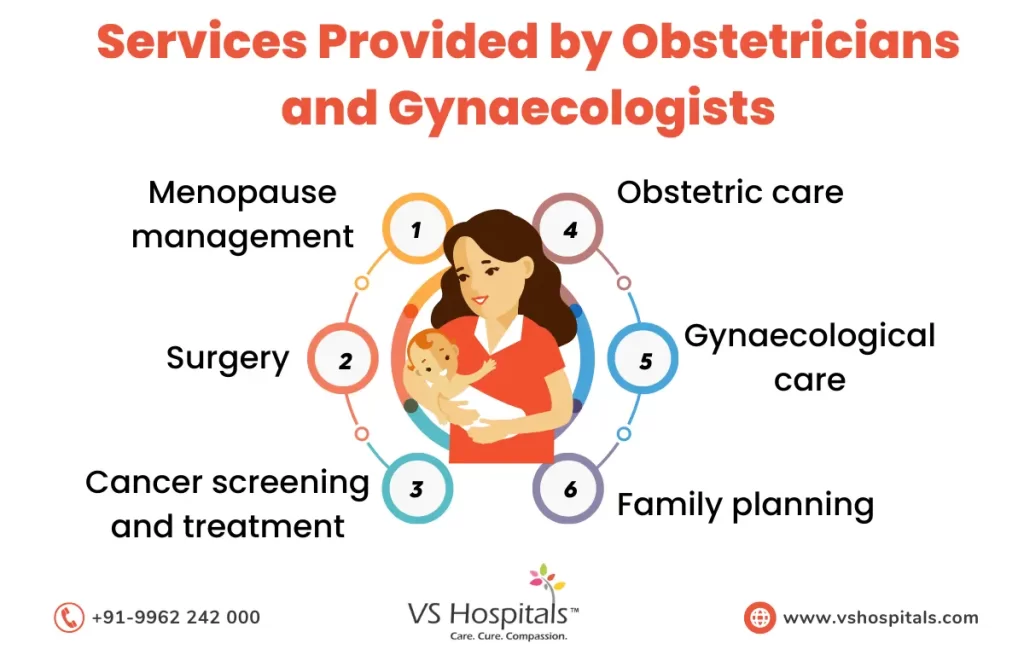In the modern field of health, gynecology and obstetrics have become essential to women’s well-being. Although they work closely together to optimize women’s health, they have distinct roles in the medical profession. However, for those who have not needed a gynecologist or obstetrician, understanding the difference between obstetrician and gynecologist can be confusing.
This article aims to provide clarity on the roles of both professions and how to determine which doctor is best suited for individual needs.
Gynecologists
Gynecologists specialize in the female reproductive system. They diagnose and treat conditions related to the reproductive system, such as menstrual disorders, infertility, and sexually transmitted infections. The good gynecologist in Chennai also provides preventive care, such as Pap smears, breast exams, and contraceptive counseling.
Obstetricians
Obstetricians, on the other hand, specialize in the care of pregnant women, from conception through delivery. They monitor the health of both the mother and the fetus and provide prenatal care to ensure a healthy pregnancy. They are also responsible for managing complications during labor and delivery, such as breech birth or fetal distress.

Difference Between Obstetrician and Gynecologist
There is a certain difference between obstetrician and gynecologist. Obstetrics focuses on caring for women and their babies during pregnancy, childbirth, and the immediate postpartum period. Gynecology, on the other hand, specializes in diagnosing and treating conditions related to women’s reproductive systems.
While gynecologists may also provide obstetric care, not all gynecologists are obstetricians, and vice versa. In fact, many obstetricians choose to focus solely on obstetrics and do not provide gynecological care.
Education and Training
Both obstetricians and gynecologists complete the same basic medical education and training. They must obtain a bachelor’s degree and then attend medical school, which typically takes four years. After completing medical school, they must complete a residency in obstetrics and gynecology, which can take up to four years.
During their residency, they receive extensive training in the diagnosis and treatment of conditions related to the female reproductive system, as well as in the management of pregnancy, labor, and delivery. There is not much difference between obstetrician and gynecologist in receiving similar training in surgical procedures, including cesarean sections and hysterectomies.
Certification and Licensing
To become certified, a physician must complete a residency in obstetrics and gynecology, pass a written and oral examination, and meet ongoing continuing education requirements. In addition to being certified, obstetricians and gynecologists must also be licensed to practice medicine in their state.
Licensing requirements vary by state but typically include completing medical education and training, passing a licensing examination, and meeting continuing education requirements.
Services Provided
The services provided by both are also included when considering the difference between obstetrician and gynecologist.
Gynecologist in Chennai provide a wide range of services related to the female reproductive system, including
- Routine gynecological tests, including Pap smears and breast exams.
- Diagnosis and treatment of reproductive system conditions, such as endometriosis and polycystic ovary syndrome.
- Contraceptive counseling and management, including prescribing birth control pills, intrauterine devices (IUDs), and other forms of contraception.
- Management of menopause symptoms and hormone replacement therapy (HRT).
- Fertility evaluation and treatment, including in vitro fertilization (IVF) and other assisted reproductive technologies (ARTs).
Obstetricians in Chennai care for pregnant women, including:
- Prenatal care, including regular check-ups, ultrasounds, and other tests to monitor the health of the mother and fetus.
- Management of complications during pregnancy, such as gestational diabetes and preeclampsia.
- Delivery of the baby, either vaginally or by cesarean section (C-section).
- Management of complications during labor and delivery, such as fetal distress or preterm labor.
- Postpartum care, including follow-up appointments to monitor the health of the mother and baby after delivery.
On comparing both, you would have got a clear idea regarding the difference between obstetrician and gynecologist.
Conclusion
To conclude, although there is a difference between obstetrician and gynecologist, both share similar training and skills, but obstetricians have to undergo additional training in managing childbirth and related complications compared to that of the gynecologists.
Read also Early Pregnancy Mood Swings.
